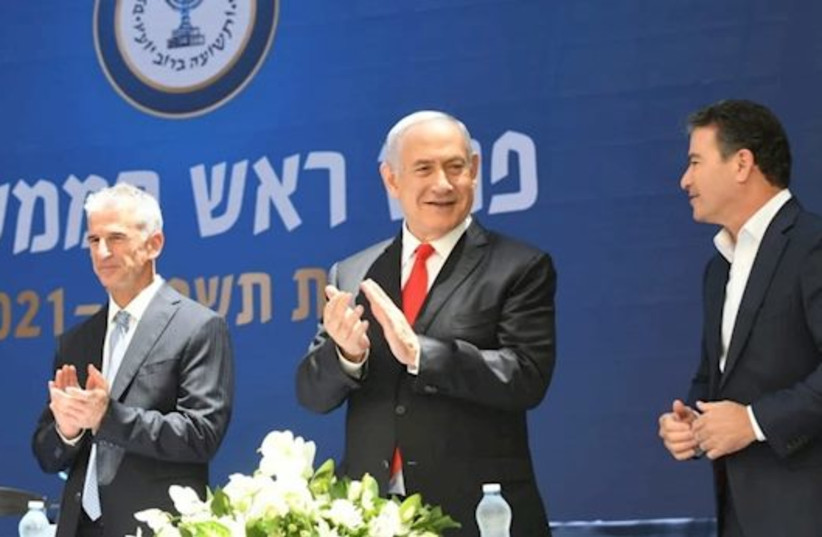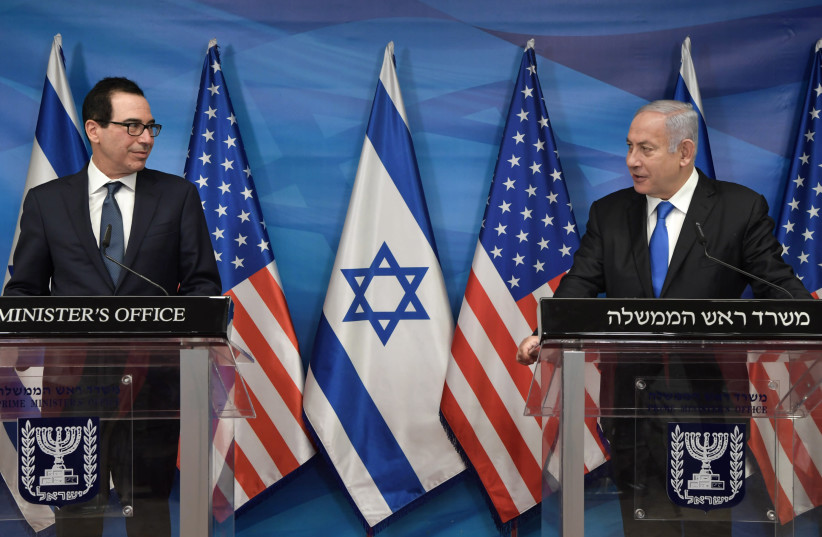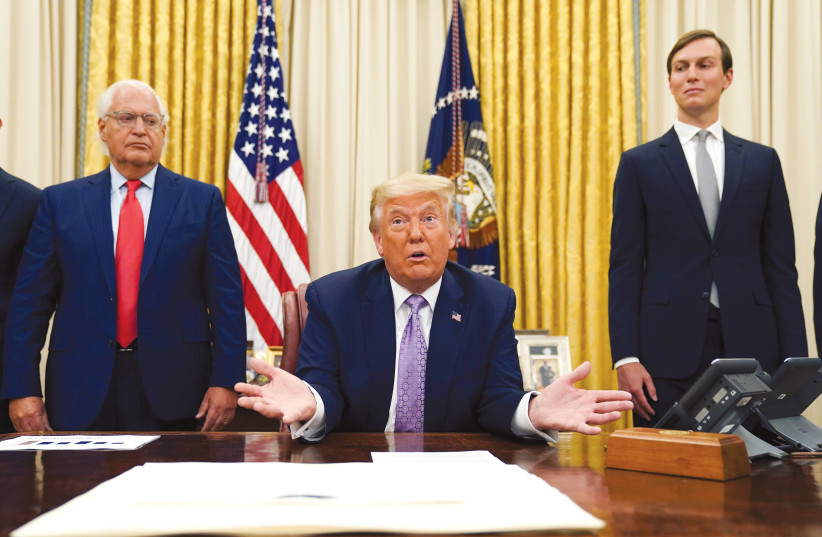There is no question that the Abraham Accords have changed the Middle East. Peace between Israel, the United Arab Emirates, Bahrain and Morocco has led to greater stability, not only for the Jewish state but for the entire region.
These four men, some of the key architects behind the historic peace deals, are no longer in government but they are still looking to make deals - this time in finance.
It is an interesting, but not surprising move.
See No. 20: The Who Behind WhatsApp
See No. 22: The VP's Husband
See full list
Download full magazine
See 2020's list
The interplay between being a diplomat and an investor or being active in trade and commerce is natural. The same skills it takes to help smooth relationships between countries naturally translate to other walks of life. In addition, Jewish and Zionist history is replete with examples of those who were successful in both worlds, from Moses Montefiore to Isi Leibler, the Australian Jewish activist and businessman who passed away this year.
Yossi Cohen, who recently stepped down as head of the Mossad, was tapped by Softbank, the massive Japanese conglmerate holding company to lead their investment arm in Israel.

“One of the reasons for the choice of Cohen is the fact that he is a well-known and popular figure in Israel, even though he does not have a background in investment,” Globes noted. “Cohen has the ability to connect to Israeli entrepreneurs and technology and to open doors for them in any company, government or public authority in any territory.”
Cohen was born in Jerusalem in 1961 and served in the paratroopers before studying in London and joining the Mossad. Appointed National Security Advisor to Prime Minister Benjamin Netanyahu, he became head of Mossad in 2016. Under Cohen, Mossad was credited with numerous important operations designed to interdict Iran’s nuclear activities.
His name has been floated as a possible successor by Netanyahu in 2021 as the prime minister confronted political infighting and another election. Instead of rushing into politics, Cohen has chosen a different path, at least temporarily.
“SoftBank has pioneered a new approach to technology investing and created the world’s largest ecosystem of emerging technology champions,” Cohen said at the time of the announcement of his role. “Israel’s advanced technology and entrepreneurial culture make it a natural fit for SoftBank’s investment vision, and I look forward to helping fast-moving companies scale in the region and globally.”
Steven Mnuchin, the secretary of treasury under President Donald Trump, and David Friedman, the former US ambassador to Israel, recently opened an office in Tel Aviv for a new investment fund called Liberty Strategic.
“We’re opening an office here because of the extraordinary technology, especially in cybersecurity and fintech, which are major areas of interest for us,” Mnuchin said a few months ago, noting that his experience overseeing cybersecurity for the entire financial services industry of the US, as well as the IRS, is relevant for the new venture.
“We hope to be considered one of the best strategic partners in these areas,” he said, adding that in Israel, “there is a lot of great technology and we think we can grow businesses.”

Mnuchin was born in New York in 1962 and went to Yale, before working for Goldman Sachs, where his father had also worked. He left Goldman in 2002 and became an investor, playing a key role in companies such as OneWest before being tapped by Trump to lead the Treasury Department. He became one of several key former Goldman executives to go to the helm of America’s key government financial department.
Mnuchin and his new investment firm may open more offices in the region in countries that are part of the Abraham Accords.
Friedman, who was born in 1958 and studied at Columbia before becoming a bankruptcy attorney, had worked with Trump before he became president. He said later of the Abraham Accords that the vision to put the peace deals together was there from the beginning, and the goal was to build trust among the partners. “No one saw it coming,” he said in a recent interview.
Friedman met with the foreign ministers of both Bahrain and the United Arab Emirates in mid-June, and said they both felt that the peace agreements, despite the difficulties faced during the recent war in Gaza, had passed the test with flying colors.

He said that leading Mnuchin’s investment office in Israel is the rare job that combines business with working for a cause in which he strongly believes.
“I love this country, and the last four years have been just a blessing to be here, and I want to participate in the further growth of Israel,” said Friedman. “This is the growth of Israel. This is part of what makes the country great: it is a job creator, a growth creator, and an area about Israel that the world admires.”
Meanwhile Jared Kushner, son-in-law of Trump and a key architect of the Abraham Accords, is also going into the investment world.
Born in 1981 to a real estate developer, Kushner became integral to the business in the 2000s, expanding it and also purchasing the New York Observer. He played a key role in Trump’s campaign as a problem solver, and later served as senior advisor to the president, handling the most sensitive and important issues including peace in the Middle East.
Kushner is now starting a Miami-based investment firm called Affinity Partners. Although there is only sparse information on this firm, the decision to go into the investment world is part of the larger pattern of diplomats-turned-investors.
Kushner, for instance, was a key administration contact for business leaders and helped negotiate the United States-Mexico-Canada Agreement, a free trade agreement between the three North American countries, as well as the OPEC+ oil deal that led to the largest cut in oil production in history.
These men will be interesting to follow in the years to come. Not only are they becoming influential business players in Israel’s tech market, some of them are still holding on to political ambitions.
